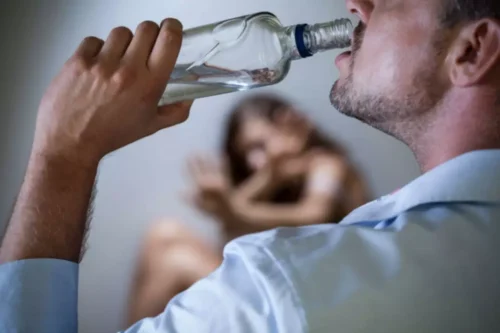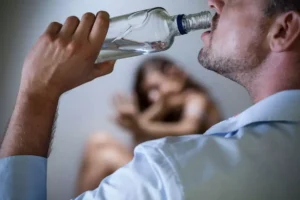
Cultivating the seven core attitudes of mindfulness – non-judging, patience, beginner’s mind, trust, non-striving, acceptance, and letting go – can further strengthen one’s ability to manage cravings and triggers. Resources such as SAMHSA’s National Helpline, aftercare support groups, and mutual help organizations like Alcoholics Anonymous (AA) and Narcotics Anonymous (NA) can provide invaluable support for those in recovery. These resources offer a secure and encouraging atmosphere to share stories, gain inspiration from others in similar circumstances, and foster a sense of community and responsibility in maintaining long-term sobriety. “When the going gets tough, the tough get going.”Lane Kiffin exemplifies this philosophy in all aspects of his life, both on and off the field. Despite enduring personal hardships, Kiffin has been instrumental in guiding the Rebels to triumph, making his journey incredibly inspiring. It is no longer a difficult struggle to find purpose; Coach Kiffin now serves as a source of motivation, inspiring others through his own story.
Mental Health Treatment
The cycle then continues with alcohol used to numb the guilt, but eventually, the user’s guilt can become so unbearable that they stop drinking again. Tolerance is when the body has become physically dependent on alcohol, heightening the risk of addiction. As the body changes and learns to “tolerate” regularly consumed amounts of alcohol, it increasingly demands higher amounts to trigger the effects previously achieved with less alcohol. If a person stops drinking after tolerance, dependence, or addiction takes hold, they will experience withdrawal symptoms. Relapse means to resume drinking alcohol after a period of sobriety. https://ecosoberhouse.com/ National Institute on Drug Abuse (NIDA) statistics find that 40 to 60 percent of people with a substance use disorder, including alcohol, relapse at least once.

Mixing Weed and Alcohol: Effects and Risks
I had one cold that lasted five days following a flight, and one sore throat after eating sweets coughed on by a sick child (how I expected immunity I do not know), but no other illness. In the gym my recovery times felt quicker, and my face began changing. Instead of a glass of wine after work, I was focused on a routine of weightlifting, running and swimming. Then came February and March, and I realised that my desire to drink was harder to quell than I thought.

How Alcohol Affects the Body and Brain
By addressing these challenges head-on, those committed to sobriety can enjoy the many benefits of a sober life, such as improved physical and mental health, better relationships, and increased self-confidence. Since the 1940s, roughly 60 percent of Americans have said they drink occasionally, according to analysis by The New Consumer/Coefficient Capital, a statistic that has stayed consistent until today. But that stat is beginning to drift downward, with 26 percent of drinking after being sober Americans polled saying they planned to drink less in 2025. Describing the reasons for this planned decline, 47 percent said they wanted to do it for their physical health, 32 percent to live longer, 24 percent to lose weight and 23 percent for their mental health. Since Dad’s head injury, my brother, Dad’s doctor, and I already considered dad’s drinking a problem. But Dad and Mom had worked out an agreement where he’d (supposedly) drink in moderation.
- The average liver in a healthy adult metabolizes one drink in approximately two hours.
- Ever notice during a bar crawl that the farther you have to walk to the next destination, the longer in the night you can hang in there?
- A glass of wine, a shot of liquor or a beer – these can all be triggers to start you down the path of drinking again.
- Alcoholism is often described in stages, from the initial phase of occasional binge drinking to the final stage of chronic alcohol dependence.
- I can’t constantly sit back and crave something I no longer even enjoy, which will be an incredible life change going forward.
However, people who negatively affect their family or work responsibilities due to their drinking are people who abuse alcohol. People who become physically dependent Twelve-step program on alcohol are alcoholics. These negative repercussions can be avoided by dispelling the myth that alcoholics are able to drink in moderation. There are plenty of ways to enjoy social situations involving alcohol without drinking. There is no need to despair – it is just important to avoid that first drink. They can have a few drinks, and stop when they feel themselves becoming too intoxicated.

Can’t Get Anything Done? Why ADHD Brains Become Paralyzed in Quarantine

These individuals are sucked back into the vicious cycle of losing control of their actions and desires. This cycle is accompanied by feelings of shame and guilt, leading them to drink more and increasing the severity of their alcoholism. On the other hand, moderation may be more suitable for those without a history of alcohol addiction or dependence, allowing them to enjoy the occasional drink without compromising their health.
Commonly Asked Questions About How To Stay Sober
Casual drinking, also known as social drinking, refers to the responsible and moderate consumption of alcohol, usually in small amounts on rare occasions. This is in stark contrast to binge drinking or alcohol abuse, which involves excessive and frequent alcohol consumption. A drinking dream is a dream in which a person in recovery dreams that they drink alcohol again after becoming sober. It can also include acting in old behaviors that the person used to engage in while drinking. For example, it could include lying, fighting, being arrested, etc.